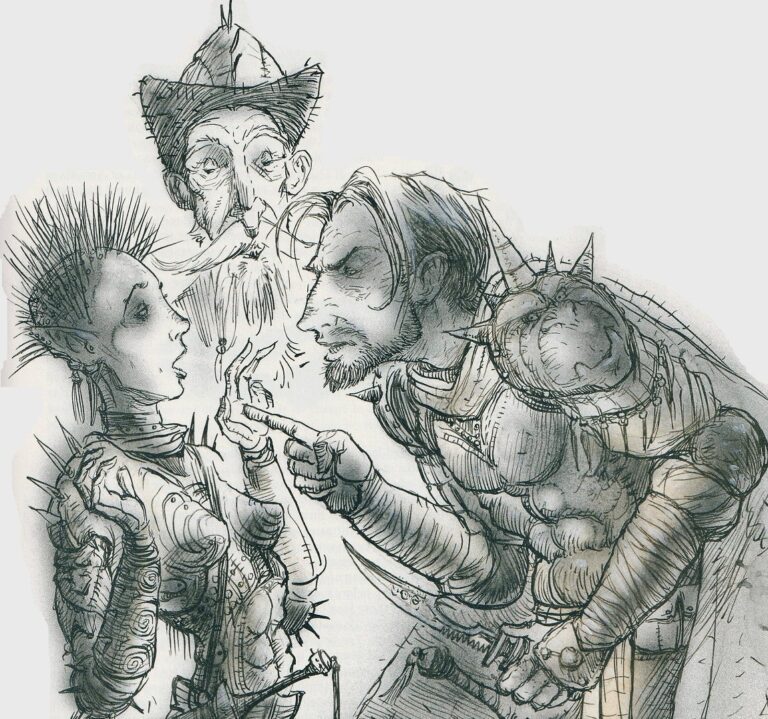
Reputation
by RobinReputation of the PC's has been discussed a few times in the old Dragon Magazines, and some guide rules had been created.
I had compiled these together in this handy DM Tool in an automatic Excel table some time ago.
I polished it up, and now it is ready for use.
The DM merely needs to fill in the name, level Charisma in the white areas (The colored areas are locked)
Then fill in how much several things the PC did or happened too, or was rumored to.(add the number as in the yellow areas in the corresponding white areas. If non such thing happes fill in a 0.
The sheet then calculates the Reputation of the PC in the right corner.
This number is the used as explained in the table pink section to give an adjustment to the standard reaction roll.
A DM can easily print this out and add to the character information he/she has, And use it in the game, and change it when the character levels.
or keep the digital version closeby, adjusting on the go depending on the dees done

Any other suggestions are welcome.
I hope you will enjoy this.
Here is a group version (of up to 9 PC's) I created today, for a DM to keep easier track of his PC group.
Keep in mind, the table effects also changes when the PC's move elsewhere if used correcty by the DM
compiled the two or three Dragon Articles on this somewhat together.(don't ask me which ones, this tool is made long ago, and I just made it functional and automatic. I believe one was in the 230+ range)
The system works on the acts of the players like you describe. and indeed charisma is brought in too.
Chaeisma is in the RC used to influence Reaction rolls like you say. It depends on the DM if (like I said in the way to use the tool) if they do so on the final reaction roll as normal or decide not too, as it is somehow in the Reputation itself.
Alignment Is not included within. Yet it is more based how a group/nation/culture perceives the character by its known/reputed deeds and actions, both assumed bad and good.
I thought that is also the reason, it is (like the sources) based on PC's only and not on NPC's...as per RC, evil characters are to be played solely by the DM, ...and as such will perceive actions differently. I could not inter this in the tool, better than I did now.
The reason I made the tool automatic, is that circumstances vary...for instances a famed PC wanders in a group of opposing NPC's, his religious deeds will then be seen as bad instead of good, and when filled in correctly as such...will give the Reputation.
Keep in mind the group actually dictates how actions of a PC are affecting its Reputation.
I tried it, and it workes well, though the DM must change according circumstances and actions.
Hence I made it automatic(instead tables and formulae to be calculated)...to make it easier and more gentle in play.
The reputation number generated automatically , is used in the lower pink section.
The DM rolls a 1d100 before he rolls reaction rolls,
if he rolls 01-05 he knows the reputation of the PC well...and gets a bonus on his reaction roll if he is a friend or a penalty if he is a foe
if he rolls lower than the automatic Reputation number he knows the reputation of the PCll...and gets a bonus on his reaction roll if he is a friend or a penalty if he is a foe
if he rolls higher (or equal) than the automatic he doesn't know the reputation of the PC...and gets no bonus or penalty on his reaction roll
One note; a second time with the same PC will have a new roll only if the ruptation of the PC is changed...this makes the NPC know of this change, and affecting his reactions accordingly. otherwise use the same bonus/penalty. Do not stack bonusses/penalties, but always use the last one.
It is goed to add this number to the NPCdata if it is possible for the PC to meet them again later.